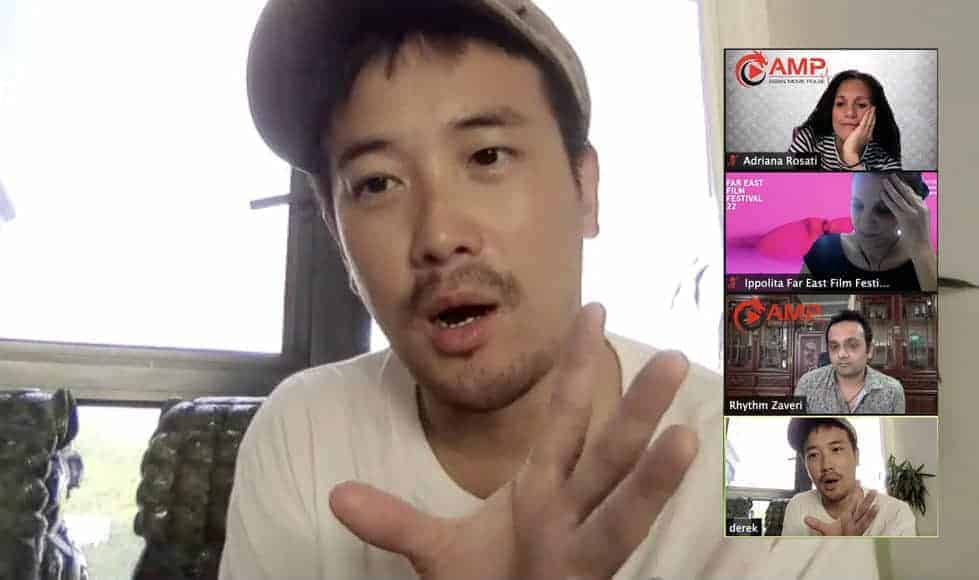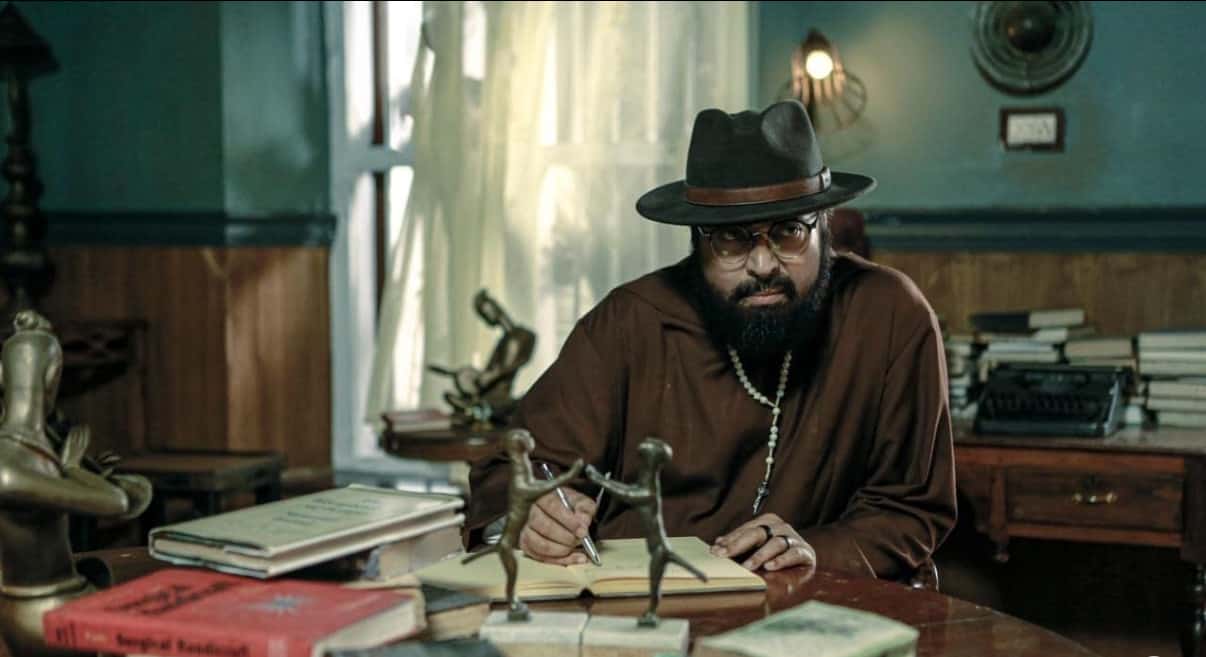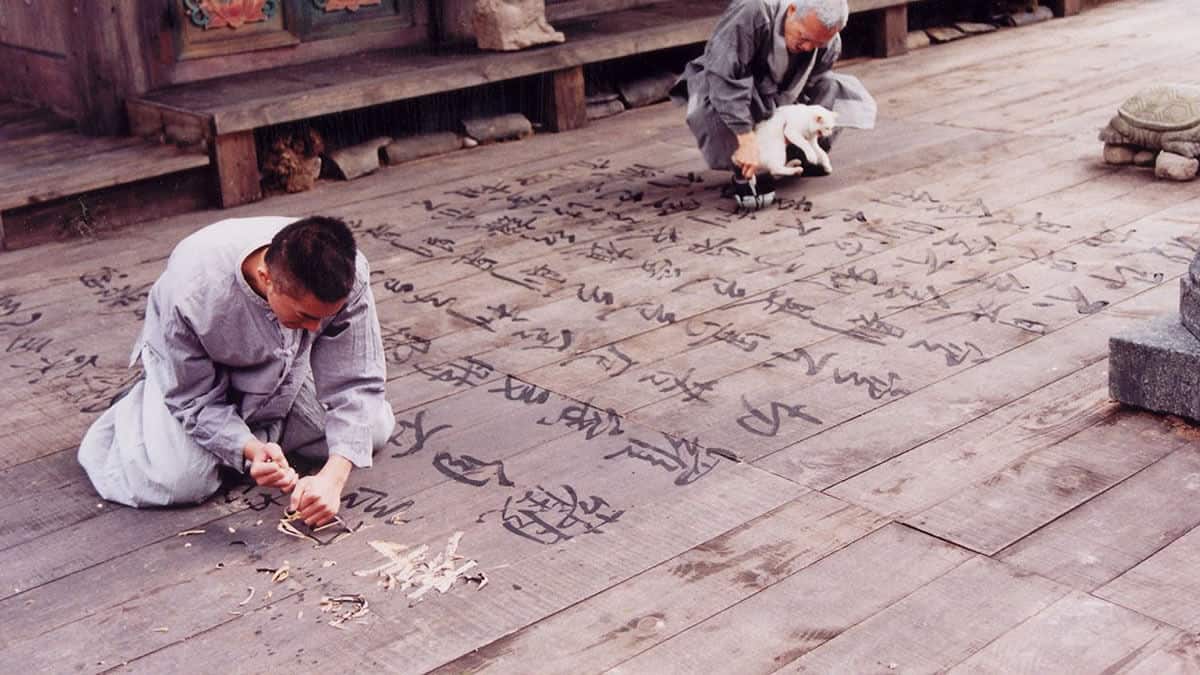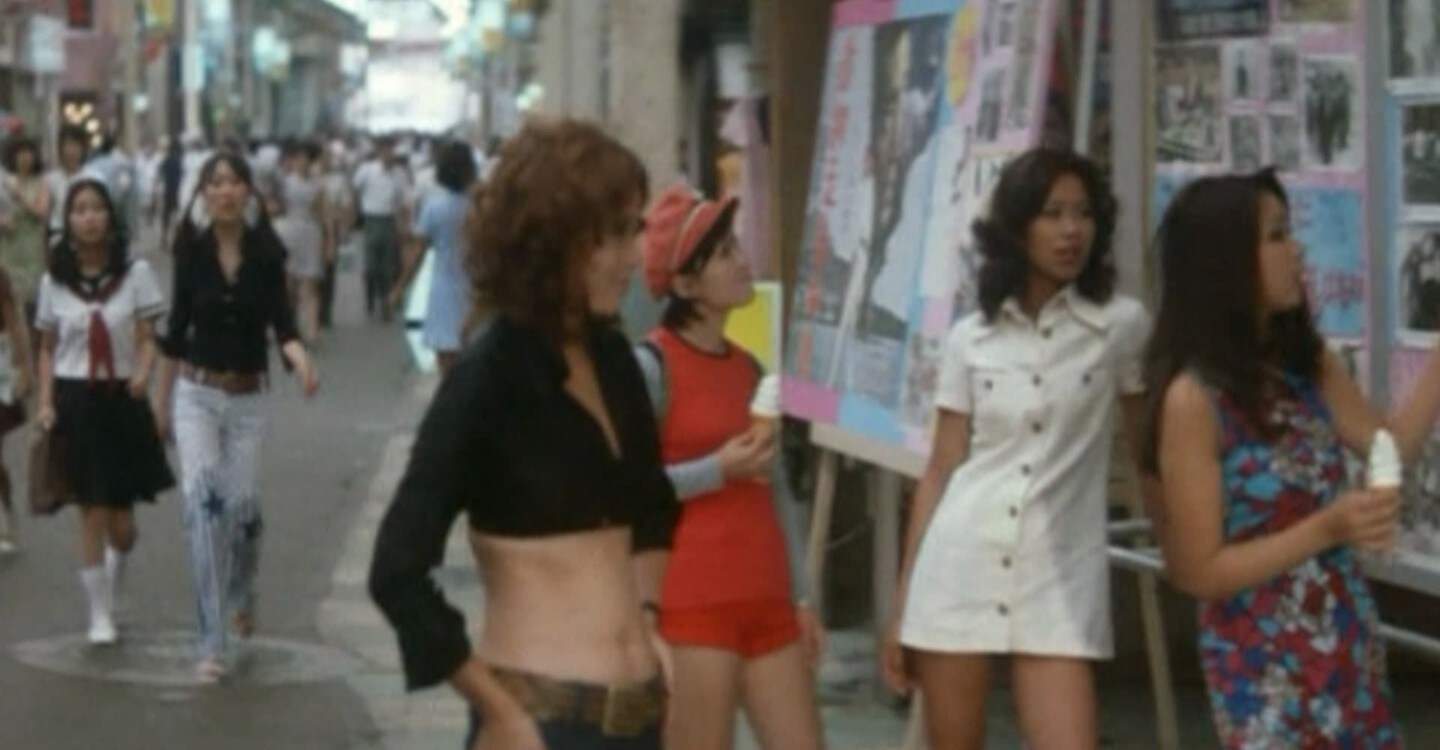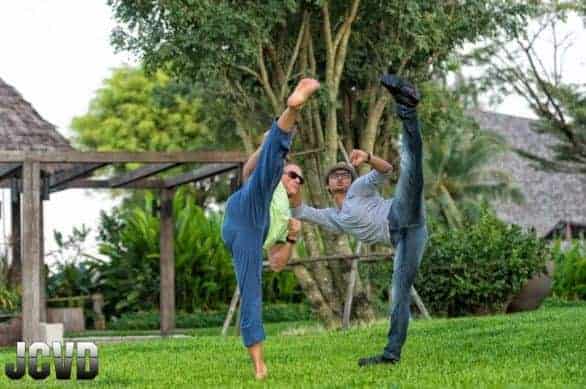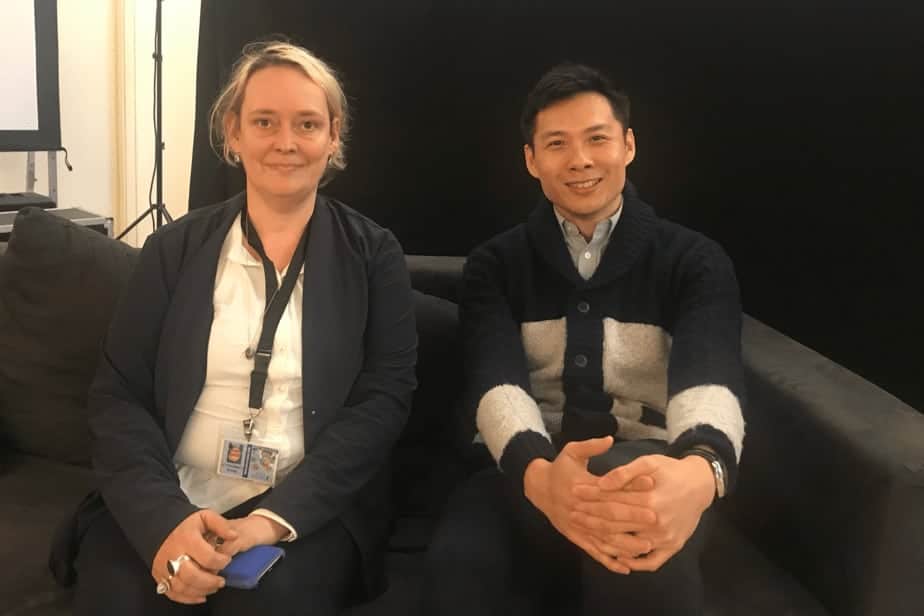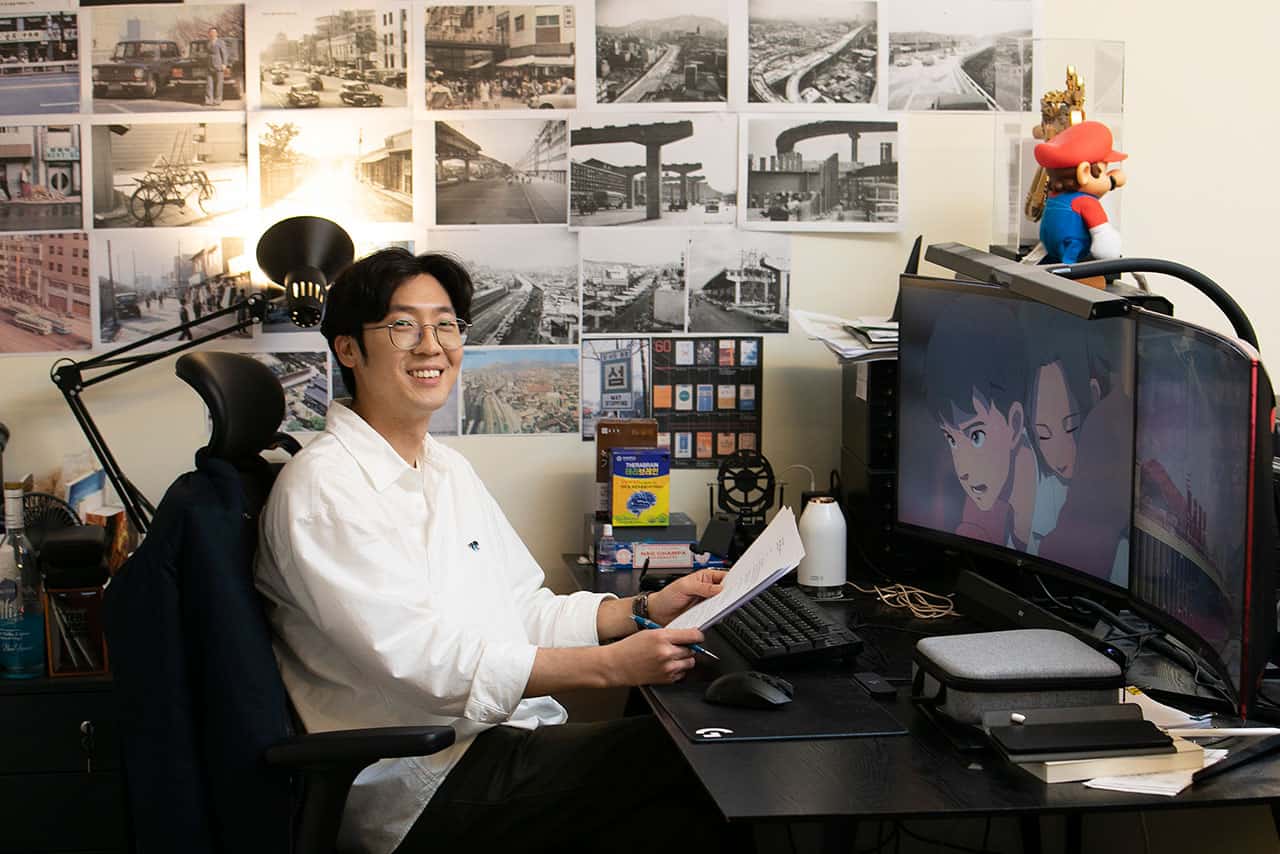Derek Tsang Kwok-Cheung was born on November 8, 1979 in Hong Kong. He is an actor, writer and director. He co-directed ”Lover's Discourse” with Jimmy Wan in 2010, followed by ”Lacuna” in 2012 with Chi-Man Wan. Tsang's solo directorial debut “Soul Mate” (2016) was well-received by critics and audiences. The lead actors Zhou Dongyu and Ma Sichun won Best Actress Awards at 2016's Golden Horse Awards. Tsang was also nominated for Best Director and Best New Director at that year's Hong Kong Film Awards. His latest effort “Better Days” had its theatrical release in China at the end of October 2019 and it's set to become one of the most praised movies of the year 2020.
On the occasion of his film “Better Days” screening at the Udine Far East Film Festival 2020 and winning the Black Dragon Critic Awards and the Golden Mulberry Audience Award, we met him in a virtual room and talked about his Dream-Team of regular collaborators, the issue of bullying, the difficult release, the casting of Zhou Dongyu and Jackson Yee and much more.
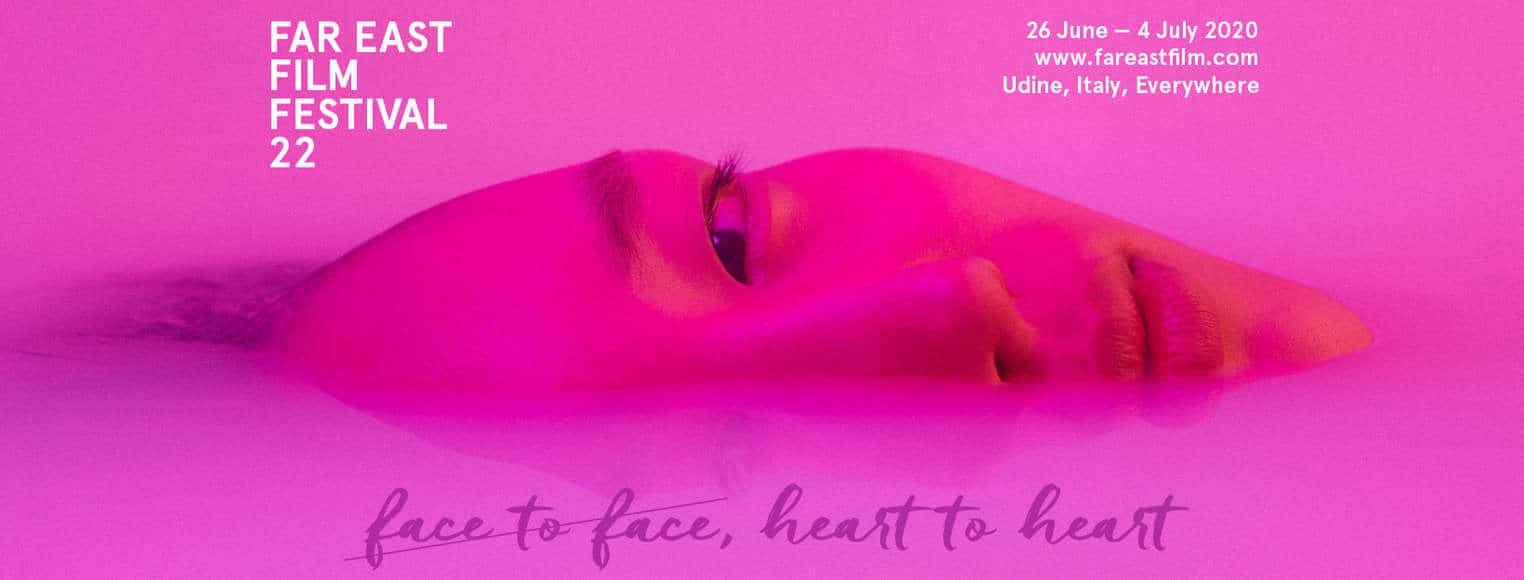
Our Rhythm Zaveri and Adriana Rosati interviewed director Tsang. Matthew Scott and his students of the Far East Festival Campus also were present in the interview.
Can you tell us about the reason why you wanted to highlight the problem of bullying especially in China and what kind of research was done for this story?
I always wanted to make a film about bullying. I think I have been very lucky in terms of my teenage years; I have never really witnessed any bullying in my school. Apart from some very minor incidents, there had never really been any serious bullying. But I had friends that were seriously bullied growing up and they seemed perfectly sweet human beings and for me it was a mystery why someone would bully them. I didn't incorporate any of my friends' stories into the film. When we started to have social media and smartphones, with all these bullying videos that were viewed by everybody, I was very surprised. I had never seen anything like that and I was very curious to understand why people could do that to other people. There has always been this important question for me: “how can someone treat other people like that?” That is why I always wanted to make a film that tackles the issue so, when I came across the novel “Better Days” is based on (Jiu Yuexi's novel In His Youth), I was really excited because I felt I had finally found a story that can tackle bullying face on. That is why I was really excited, and I decided right away to use it. I got the novel right after we wrapped “Soul Mate”. We hadn't even started the editing or the post-production when Jojo gave me “Better Days” saying, “I though this may interest you.” I read it in one night and I was very excited and I thought I really wanted to make that into a film, (wanted it) to be my next film.
For research, we watched lots of these very traumatising bullying videos that you can find online. There are tons and tons of them; they are just there online and they are very cruel. I wanted to create a scece that was as cruel as the ones I had seen. We also talked with lots of students that were bullied and we talked to bullies too, about why they did that to people. I really wanted to find an answer to why people bully in the first place. But in the end, I do think it is something that cannot be answered, it's part of our human nature, there isn't a simple answer. All I could do with the movie is to recreate scenarios where bullying could happen, where these participants come from, what background they are from, what make them able to do that sort of things.
The Gaokao (the Chinese college entrance exams) is something I wanted to address because it is something that had always wowed me, about how high pressured the students are, how much blood and sweat they put into this exams. It is something like a phenomenon. Every time I am in China in the months between May to June, there is always this topic around, all this social commentary about Gaokao, and it's something that is a very high risk environment and so I wanted to adapt it and put it into the film as a background.
“Better Days” has something in common with “Soul Mate”; they both have the first half considerably different from the second one in terms of mood. In “Better Days”, the genre shifts from social commentary to thriller. Is it a coincidence or a personal stylistic choice of yours?
I think it's just a coincidence. It's also because of the way this plot unfolds that gives that feeling that it turns from a social commentary film into a thriller. But it wasn't really a conscious effort of me to make both films being like that. I don't have a strategy, I just use what it is most effective for the story, I was never really conscious of making the film in two parts with different emotions or feelings.
And was the original material structured in this way or did you decide to enhance or omit any specific part?
We based the script very loosely on the original material, the novel. We re-wrote the whole thing. To be honest, I don't even remember the original novel that much. We basically took what we thought was good for the characters from the story and developed everything ourselves. But we wanted to make that thriller, the part of mystery, stronger in the latter part of the film because we wanted to make sure it could reach a climax, so it was definitely a conscious effort to have that mystery and thriller feeling at the end.
Expanding a bit on the thriller and social commentary mix, there seems to be a trend in China now, with lot of directors choosing to go towards more genre type of filmmaking with some social commentary in it. Do you also see that trend and why do you think that is the case?
I do agree with you. I think there is a trend of genre films with very punching social commentary underlining the whole film. I think we filmmakers from different cultures and countries like to address current social issues that they think need to be talked about and there are a lot of issues in China that we want to talk about, that filmmakers want to present and raise a question on. With genre films, there might be a commercial opportunity, so that's why a lot of people are turning to genre film, but underlying it they still want to make a movie that questions social issues that they want to raise awareness about. So that's why I think a lot of young filmmakers are choosing that direction.
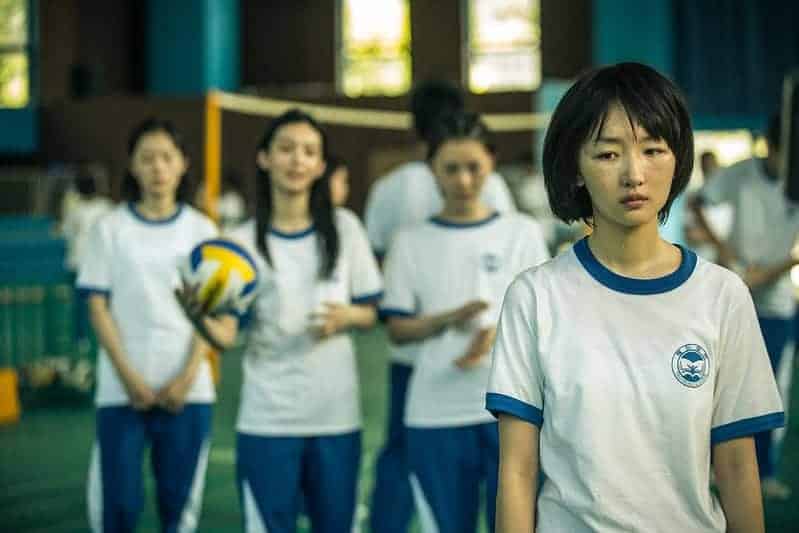
Being a primarily a Hong Kong production but dealing with a Mainland real-life story in a Mainland setting, did you face any particular issues in terms of the research or the execution?
Not really. Even though a lot of the crew is from Hong Kong, our scriptwriter is from China. Our production designer is also from China. So there's a lot of mix-and-match of people from Taiwan, Hong Kong and China. But I think the story itself, even though there are a lot of local colors, is actually something that's quite universal. You can put that into any country, any culture and it would still work. So I wasn't too concerned about the story itself but it was more about these local colors that I wanted to be very accurate with. Like the Gaokao we talked about, the high school final examination, which is something that's very big in China, something that is very important in every Chinese high school student's life. So that was something that I wanted to make sure I get right, in terms of what they would go through or what they would study, how they orient their daily life around this final exam. That was something that I was quite concerned with at the beginning because I'm from Hong Kong and I've never been through that final exam process. So I did a lot of research about high school in China, what that is like, how they talk, what they do when they're in school. That was something I was very concerned about because I don't want the Chinese audience to watch the film and be like “this is not what we were like when we were in school”. I wanted to make sure that it's done properly so that the audience in China can relate it to their daily life in school. That's what I needed to make sure I got right.
You seem to have found a dream-team after “Soul Mate”: producer Jojo Hui Yuet-jun, cinematographer Jing-Pin Yu, your team of scriptwriters, costume designer Dora Ng. Not to forget the wonderful Zhou Dongyu. Can you tell us how it is for you working with this core group of regular collaborators that also happens to be all women?
I have known Jojo (Hui Yuet-jun) for a very long time, she is my mentor and the one I was working very closely with at the beginning of my career in films. When I finished university, I went back to Hong Kong and started to work in Peter Chan's production company. Jojo was one of the producers in the company and she became my sifu, my mentor. I was following her around all the time and helping her. So, my knowledge of movie production really comes from Jojo. I worked with her closely for three years and learned a lot from her; I would say she influenced me a lot as a filmmaker. After that, I left the company and started to do my own things and it was really with “Soul Mate” that we worked together again. For me, it was a very warm feeling, like coming home, going back to a bunch of people I had worked with so closely in the past, and this time as a director instead of a production assistant. So it was a big emotional moment for me.
Another thing is that I was really taken by their huge knowledge of the whole China market and how it works; for me “Soul Mate” was a very risk-taking project because it was the first time working in China. A lot of the people I work with now, like the scriptwriters, the cinematographer, Dora (Ng, costume designer) they are all people I started work with in “Soul Mate”. For me, it was like stepping out of the comfort zone at the time, but after “Soul Mate”, like you said, I found a Dream Team, a family of people that are very close to my own taste in films and now I cannot think of myself working without them. We've grown together like a family and I know that for lots of my future projects, I will go back to them and ask them to help me out.
The acting of both the actors is excellent, very subtle and nuanced. How did you control the energy on set?
It is my second time working with Zhou Dongyu and we became very good friends after “Soul Mate” but we still had a very long and painstaking casting for the characters. At the beginning, I was leaning towards not using Zhou Dongyu for this role, because I wanted to see if there were other actresses I wanted to work with, although I think that in the back of our minds, we always knew that we eventually could easily have her because we know how good she is. But I wanted to explore and see if there were other actresses. So we did a long process of casting and in the end, we thought she was the most suitable for the role.
But when we decided to have her, I talked to her, we had a clear understanding. I wanted to make sure we did not repeat what we did in “Soul Mate”. For that film, while shooting, I really encouraged her to be herself as I wanted to catch what I think is most attractive about her personality. Ansen, her character in “Soul Mate”, is very similar to how she is normally, but this time for “Better Days”, I wanted to make sure that none of her personality would appear in this character. I wanted to be sure that audience could see a new Zhou Dongyu. This is something I was very clear about with her. Down to little gestures, how she turns her head or how she walks, I wanted to erase all the traits of Zhou Dongyu from this character. So I think that for her it was a very painful acting experience. She actually said in interviews that “Better Days” was the hardest role she had ever had in her acting career. I pushed very hard during the filming. I think she was very clear too that she wanted to improve and show she can act as a 17-year-old high school student very convincingly, getting rid of the “Zhou Dongyu acting trademark” and prove that there are lots of different sides of her.
With Jackson (Yee), well, I think he is someone very special. I have never met someone so young and so sensitive. He started at the age of 13 in a boy band (TFBoys) and he was singled out when he started. Lots of people were criticizing him for not being good enough. He came a long way. Now people love him but at the beginning he was very much criticized and I think that made him very sensitive, someone with a lot of empathy and I think that carries into his acting in the film, even though he plays the part of a gangster, a street boy in the outside but who is actually very warm. So, that is something that helped tremendously in his acting.
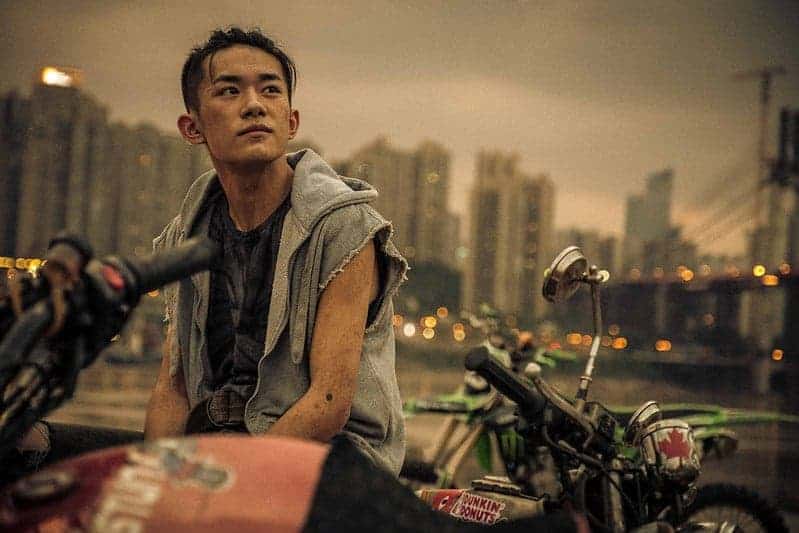
The film looks beautiful, dark and gritty in the earlier parts but bright and beautiful as the bond between Chen Jian and Xiao Bei strengthens. Please tell us what your instructions for the cinematography and the look of the film were to the cinematographer.
Yu and I are very good friends, so we started very early into talking about how we wanted the picture to be and what kind of style we wanted. It was decided very early that we wanted the film to be all hand-held, because I think it gives that rawness and that agility to the picture. Yu is very good at it and I think that is her specialty: hand-held and working with actors. She is someone that is very sensitive to actors acting when she is working. I've always said this in a lot of interviews, I think it is a very beautiful thing to watch her work with actors on set. Because a lot of times she's holding the camera and the actors are walking, it's kind of like a dance with them. She's moving with the actors, going in close, moving back when necessary and then going in close again when she feels like the actor's acting is getting to the climax. She's very nuanced as to how she moves the camera toward the actors and it's a very beautiful thing to watch. I have my own practice, because I do a very clear shot-list of all my work. That's something that I feel very secure with when I'm directing, so for every scene, I have a very comprehensive shot-list of what I want. But I always stay open-minded when we're shooting on set. If there is something that is very captivating that happens on set, then I'll capture that as well and I give Yu the space or the room for her to have her own interpretation as well.
At the end of the film, there's a list of reforms that the government and the education system have taken to curb bullying over the years. But on the ground level, has anything really changed?
Like I said, I'm quite pessimistic. I don't think a lot of things have changed. I think it's just part of our nature. I think people in general are more aware of the problem definitely, but it's not going to deter people form doing that. It's still happening around us. I still occasionally see a video of some poor kids being bullied or beat up. So I don't think that it's something that we can completely eradicate. I mean, it's just going to be around as long as human beings are here.
“Better Days” faced various issues and delays with its release. Was that disheartening and was there ever a nagging fear that the film might not see the light of day?
No, it never crossed my mind that the film would not be released. Jojo and I fought very hard to have the film released but there was never a moment that we thought that it might not see the light of day. I felt very fortunate actually, because there have been lots of people helping the film to be released and I think it's because they really believed that the film would have a positive impact on the audiences watching it. For sure, bullying is something that need to be talked about more openly and I guess lots of people regarded the movie as a good gesture, with good intentions to try to influence more people to think about why they bully each other. So, as I said, I was confident the film would be released.
Did you have to make many compromises for the Chinese censor board?
With censorship, there are always compromises to be made, so of course we had to. It is something that all the Chinese filmmakers have to deal with. It's just the rule of the game that you have to accept, I don't feel it's personal or it's because of this film. It's something that everybody has to face.
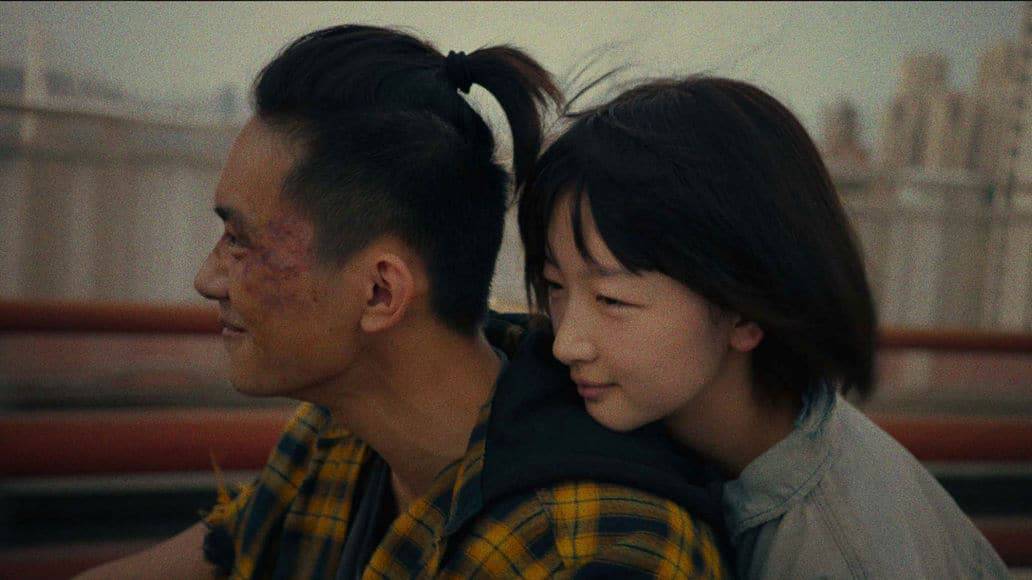
How much should we insist with kids on this topic so that they are able to face these kind of situations in the right way? Do you think there should be a delicate or a harsh manner in which to raise these topics with them?
I do get that question a lot but I am very careful because I don't want to act like I know the answer to it. I really don't. I think it really depends on each situation, as each situation is different. The most obvious answer I would say is voice out. Don't be cornered into a place where you don't voice out your situation. I think that is very important. You have to reach out and let other people know that you are suffering from bullying. I think that that's first of all the most important thing. But having said that, I've heard of stories where people are bullied even harder when they try to reach out. So I wish I did have answer but I really don't because it's really different every time in different situations.
With both your films, you seem to have found the perfect balance between mainstream commercial cinema and arthouse cinema. Is this something you've always strived for or is it something that's happened organically?
I would say I hope that it's something that happens organically. I mean, I don't really do it consciously like, “Oh, I want to balance it between commercial and arthouse”. I really just go with what I feel is the best for the film. I come from a very arthouse background myself because I've always been a big fan of arthouse cinema and that's how I came to love cinema. So I think that reflects in my work. But I don't really make a conscious effort. I think “Soul Mate” and “Better Days” are very commercial in terms of the story but my filmmaking, from my background and what I like personally, always has a bit of arthouse sensibility in it. So maybe that's why a lot of the audience would think that both the films are a balance between the two but it has never been my conscious effort to have a very good balance of arthouse and commercial.
Coming from an acting family and background, has directing always been what you dreamt of doing and was it specifically social issues that you wanted to focus on or is this just the beginning of where you want to take your career?
Yeah, directing has always been the dream, the end goal. Acting was just really an accident. I never thought of myself as an actor; it just happened. It was very fortunate that it happened. I learned a lot from it. I actually still occasionally want to have that acting feeling. I still get that once in a while but like I said, directing has always been my dream, my career. Social commentary is something that I like, but it's not something that I'm going to be doing exclusively. I mean, I still have a lot of different projects or different ideas I'm developing that are not just social commentaries. I still regard myself as a director who's starting out so I still have a lot of different things that I want to try and see if it works.
Are you working on something else right now and do you wish to continue looking at social issues in your future films?
I am actually working on several different projects and one that I think is most likely going to be my next project is about South Asians in Hong Kong. It's kind of like a social commentary film as well, because for the past ten or fifteen years there have been a lot of South Asian refugees in Hong Kong. These people came from India, Pakistan, Sri Lanka or Bangladesh. There's a big group of these South Asians in Hong Kong where they came as refugees and they basically have refugee status in Hong Kong but they're not allowed to work. A lot of these people get a very low subsidy from the government. It's not even enough for them to pass by each month. So a lot of them resort to crime. They start working for the triads in Hong Kong. For the past seven or eight years this has been a pretty big issue in Hong Kong, so I want to make a film about these group of South Asians. I've been doing research for the past year or two already so I'm hoping that's doing to be my next project.


